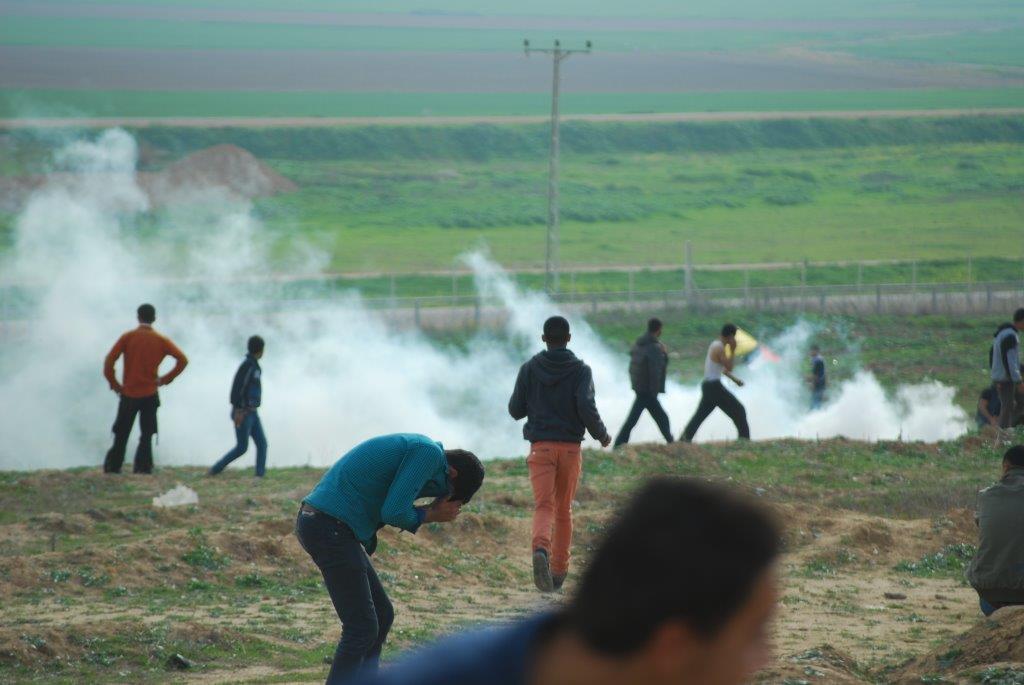Category: Reports
-
A specter is hunting Israel: the specter of the BDS movement
6th March 2014 | International Solidarity Movement, Marco Varasio | Gaza, Occupied Palestine While Israeli ministers are discussing the usage of lawyers and the Mossad to fight boycott, divestment and sanctions (BDS), in the besieged Gaza Strip, like in 250 other cities around the world, activists, students and representatives of organizations are preparing for the tenth annual Israeli…
-
Threats of lethal Israeli violence stop a weekly demonstration in the Gaza Strip
5th March 2014 | International Solidarity Movement, Charlie Andreasson | Gaza, Occupied Palestine The regular Friday demonstration at the “buffer zone” east of Jabaliya was stopped by Palestinian police and security forces. The Israel had send a message via Egypt to the Palestinian authorities in Gaza that it would not tolerate any demonstrations and that it intended…
-
17 years old arrested at school in Al Sawiya
5th March 2014 | International Solidarity Movement, Team Nablus | Al Sawiya, Occupied Palestine On Monday March 3rd, in the early afternoon, Obada Muhammad Saleh, a 17 years old Palestinian was arrested by the Israeli Forces in his school in Al Sawiya. Around 1pm last Monday, was school children were leaving Al Sawiya’s school, ten…


